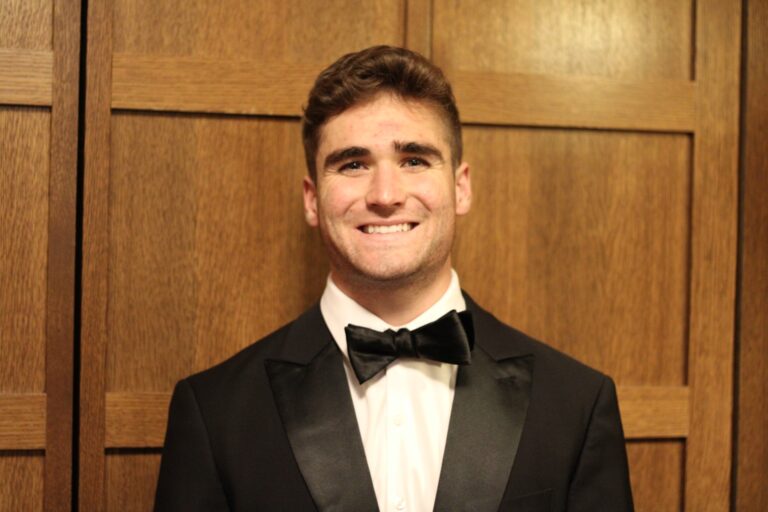Aidan Hallinan
Major in Nuclear Science and Engineering
Minor in Economics

What’ve you enjoyed most about your area of study? Was there a particular discovery, new skill or way of thinking, or insight that you found especially valuable? Please share an example from your favorite class or experience.
Despite economics originally being a weak point for me, I knew that it would be a valuable skill set to have in the nuclear energy space and throughout daily life. I had to push through a lot of growing pains, but in time I came to see the value of the economics way of thinking, especially with regard to incentives, reason, and incidence. I can think of many examples where my studies provided far-reaching insights from trade to behavioral psychology to public policy to fiscal policy, but the one I often remember covers insurance. I first learned about the details of insurance in a public policy economics class. We discussed risk pooling, premiums, copays, moral hazard, and the modern American health insurance system – all of which are important to understand and all of which most people don’t. This is just one of many examples, and it’s hard for me to describe my current analytical framework of the world without the lessons I have learned studying economics.
How does the knowledge from this field, or your interest in it, combine with your other major or minor studies at MIT?
Anyone who wants to positively impact the world, especially those interested in fundamentally changing established realities, must have an understanding of the current system and its origin. Critical to this is the idea of incentives – whose interests does this system serve, whose interests should this system serve, are these interests normatively superior, and how can we effect change toward maximum total benefit? My studies in nuclear engineering have prepared me to attack the technical challenges posed by innovating in nuclear energy, but they have not fully accounted for the institutional challenges facing the industry. This is where economics fills this gap, as much as it can be filled, and enables translation between the technical and political-financial worlds, a veritable bridge between the required mediums of progress.
An MIT education includes study in the scientific, technical, social science, arts, and humanities fields. How do you think that wide range of knowledge and perspectives will be valuable to you – for your career success and for your enjoyment of life?
I challenge anyone to reflect on the indoctrination in their life. Take me for example, I have been taught within a specific dogma of nuclear engineering, with an institutional framework for economics, history, and political science, developed to be a leader in the US Navy, all amongst a reasoned American worldview. MIT’s exposure in this is clear, but more than that, it has provided me the tools to reflect on biases and informational weaknesses, and to adapt my (strong) perspectives accordingly. Critical thinking is an oft-elevated trait that educators aspire their students to take away from their classes, especially here, but I don’t think this is something you can fully teach. It is something you gain through effective learning and an intrusive curiosity – this is the sustaining value of a cross-disciplinary MIT educational experience, given that you are interested and engaged, the total benefits will far surpass the benefits of the knowledge itself.
What are your plans for the future?
Upon graduation, I will commission in the US Navy as a submarine officer and serve my country across the world’s oceans. I think it’s unrealistic to pretend I know what will happen after my required service, but my life’s ambition is to transition our nation, and by extension our world, toward carbon-free energy. Nuclear energy plays an integral role, but this endeavor requires efforts on all levels, and I want to be wherever I can maximize my positive impact.
